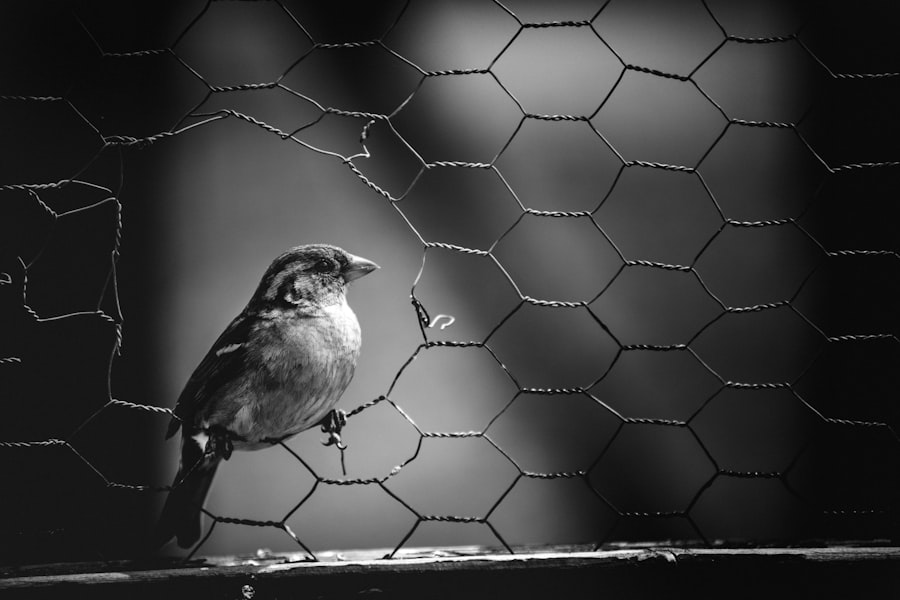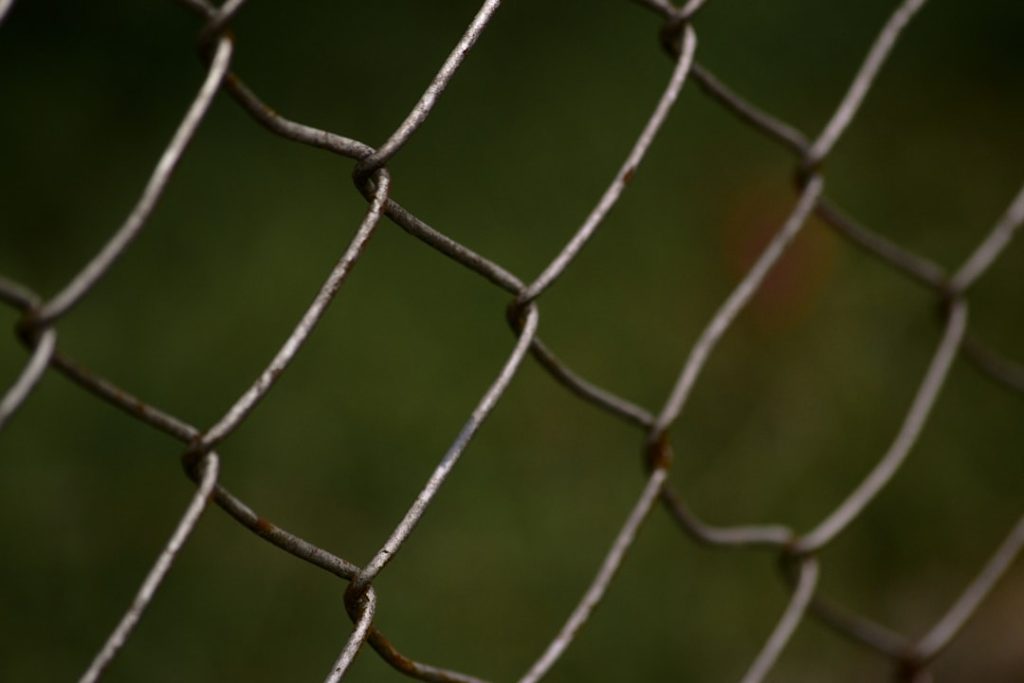Chickens are naturally curious and social animals with a strong instinct to explore their surroundings. They are opportunistic feeders, often seeking out food sources in their environment. This combination of curiosity and foraging behavior can lead chickens to wander into unwanted areas such as gardens, flower beds, porches, and patios.
Chickens are creatures of habit, frequently returning to the same roosting spots or feeding areas daily. Chickens have a natural instinct to roost in elevated areas at night for protection from predators. This can cause them to seek out high perches like trees or rooftops, which may not be suitable or safe.
Understanding these natural behaviors is essential when deterring chickens from unwanted areas. By comprehending their instincts and habits, one can better anticipate their behavior and take proactive measures to prevent damage or nuisance. Chickens are also territorial animals, often establishing a pecking order within their flock.
This territorial behavior can lead them to defend their chosen roosting spots or feeding areas, making it challenging to deter them without physical barriers or repellents. Understanding the social dynamics and territorial instincts of chickens allows for the development of effective strategies for managing their behavior and preventing disruptions in yards or gardens.
Table of Contents
- 1 Creating Physical Barriers
- 2 Using Repellents and Deterrents
- 3 Providing Alternative Roosting Spots
- 4 Implementing Scare Tactics
- 5 Establishing Boundaries and Training
- 6 Seeking Professional Help
- 7 FAQs
- 7.1 What are some effective ways to keep chickens off the patio?
- 7.2 Why is it important to keep chickens off the patio?
- 7.3 Are there any natural deterrents that can be used to keep chickens off the patio?
- 7.4 How can I train my chickens to stay off the patio?
- 7.5 What are some common mistakes to avoid when trying to keep chickens off the patio?
Key Takeaways
- Chickens are naturally curious and may explore areas they shouldn’t, so understanding their behavior is key to preventing them from roosting in unwanted areas.
- Physical barriers such as fences and netting can effectively keep chickens out of certain areas and protect gardens or other sensitive areas.
- Repellents and deterrents such as motion-activated sprinklers or noise-making devices can discourage chickens from roosting in specific spots.
- Providing alternative roosting spots such as designated perches or shelters can redirect chickens to more suitable areas.
- Scare tactics like predator decoys or reflective objects can startle chickens and discourage them from roosting in unwanted areas.
- Establishing boundaries and training chickens to stay within certain areas can help prevent them from roosting where they shouldn’t.
- If all else fails, seeking professional help from a veterinarian or animal behaviorist can provide additional strategies for managing chicken behavior.
Creating Physical Barriers
Blocking Access to Unwanted Areas
One effective way to deter chickens from unwanted areas is by creating physical barriers that prevent them from accessing those spaces. This can include installing fencing around gardens or flower beds, using chicken wire or netting to cover vulnerable plants, or even using motion-activated sprinklers to startle and discourage chickens from entering specific areas. By creating physical barriers, you can effectively block off access to areas where chickens are causing damage or becoming a nuisance.
Protecting Roosting Spots and Landscaping
Another option for creating physical barriers is to use hardware cloth or mesh to cover potential roosting spots, such as under porches or eaves. This can prevent chickens from perching in these areas and causing damage or leaving droppings behind. Additionally, using barriers such as chicken wire or netting can also protect vulnerable plants and landscaping from being damaged by foraging chickens.
Maintenance is Key
In addition to creating physical barriers, it’s important to regularly inspect and maintain these deterrents to ensure they remain effective over time. This may involve repairing any damaged fencing or netting, adjusting the placement of motion-activated sprinklers, or reinforcing barriers as needed. By consistently maintaining physical barriers, you can effectively deter chickens from accessing unwanted areas and protect your property from damage.
Using Repellents and Deterrents

In addition to physical barriers, there are a variety of repellents and deterrents that can be used to discourage chickens from entering specific areas. One common method is to use scent-based repellents, such as citrus peels or essential oils, which can be placed around gardens or flower beds to create an unpleasant odor that deters chickens. Another option is to use visual deterrents, such as reflective tape or shiny objects, which can startle and discourage chickens from entering certain areas.
Another effective deterrent is the use of sound-based repellents, such as ultrasonic devices or motion-activated alarms, which can emit high-pitched sounds that are unpleasant for chickens and encourage them to avoid specific areas. Additionally, using natural predators, such as fake owls or hawks, can also be an effective way to deter chickens from roosting in unwanted areas. It’s important to note that while repellents and deterrents can be effective in the short term, they may require regular maintenance and reapplication to remain effective over time.
Additionally, it’s important to use these methods in combination with other deterrents, such as physical barriers, for the best results. By using a combination of repellents and deterrents, you can effectively discourage chickens from entering specific areas and prevent them from causing damage or becoming a nuisance.
Providing Alternative Roosting Spots
One way to deter chickens from roosting in unwanted areas is by providing alternative roosting spots that are more suitable and safe for them. This can include installing roosting bars or perches in designated areas of the yard or providing nesting boxes in a secure location. By providing alternative roosting spots, you can encourage chickens to roost in specific areas that are less disruptive and damaging to your property.
Another option is to provide designated feeding areas with access to food and water, which can help redirect chickens away from vulnerable plants and landscaping. By providing alternative feeding areas, you can help minimize the impact of foraging chickens on your property while still allowing them access to essential resources. It’s important to regularly maintain and clean these alternative roosting spots and feeding areas to ensure they remain attractive and appealing to chickens.
By providing alternative options for roosting and feeding, you can effectively redirect chickens away from unwanted areas and minimize the impact of their behavior on your property.
Implementing Scare Tactics
Scare tactics can be an effective way to deter chickens from entering specific areas and prevent them from causing damage or becoming a nuisance. One common scare tactic is the use of motion-activated devices, such as sprinklers or alarms, which can startle and discourage chickens from entering certain areas. Additionally, using visual scare tactics, such as scarecrows or inflatable predators, can also be an effective way to deter chickens from roosting in unwanted areas.
Another option is to use noise-based scare tactics, such as clappers or noisemakers, which can startle and discourage chickens from entering specific areas. Additionally, using natural predators, such as dogs or cats, can also be an effective way to deter chickens from entering certain spaces. It’s important to regularly rotate and vary scare tactics to prevent chickens from becoming accustomed to them over time.
By implementing a variety of scare tactics, you can effectively deter chickens from entering specific areas and prevent them from causing damage or becoming a nuisance.
Establishing Boundaries and Training

Visual Boundaries
One effective method of establishing boundaries is to use visual markers such as flags or tape to demarcate areas that are off-limits to chickens. By clearly marking these boundaries, you can communicate expectations and prevent chickens from wandering into unwanted spaces.
Positive Reinforcement Training
Another approach is to use positive reinforcement training techniques, such as rewarding chickens for staying within designated areas or following specific commands. By using treats or rewards, you can encourage chickens to exhibit desired behaviors and discourage them from entering off-limits spaces.
Consistency is Key
It’s essential to consistently reinforce boundaries and training techniques to ensure they remain effective over time. By doing so, you can establish a well-behaved and well-adjusted flock that respects its surroundings and avoids causing disruptions.
By establishing clear boundaries and using positive reinforcement training, you can effectively manage the behavior of chickens and prevent them from causing disruptions on your property.
Seeking Professional Help
If you have tried various methods to deter chickens from unwanted areas without success, it may be time to seek professional help. A professional animal control service or pest management company can provide expert advice and assistance in managing the behavior of chickens on your property. They can assess the situation and recommend effective strategies for deterring chickens and preventing them from causing damage or becoming a nuisance.
Additionally, seeking professional help can also ensure that any deterrents or repellents used are safe and humane for the chickens. A professional service can provide guidance on the most effective and ethical methods for managing chicken behavior while minimizing harm to the animals. By seeking professional help, you can gain access to expert knowledge and resources that can help effectively manage the behavior of chickens on your property.
Whether it’s installing physical barriers, using repellents and deterrents, providing alternative roosting spots, implementing scare tactics, establishing boundaries and training, or seeking professional help, there are a variety of strategies that can be used to effectively manage the behavior of chickens and prevent them from causing disruptions on your property. By understanding their natural instincts and behaviors and using a combination of proactive measures, you can effectively deter chickens from unwanted areas while ensuring their well-being.
If you’re looking for a solution to keep chickens off your patio, you may also be interested in learning about the benefits of having a garden chicken coop. Check out this article on poultrywizard.com to find out how a garden chicken coop can provide a safe and comfortable space for your chickens while keeping them away from your patio.
FAQs
What are some effective ways to keep chickens off the patio?
Some effective ways to keep chickens off the patio include using physical barriers such as fences or chicken wire, using repellents such as citrus peels or vinegar, and training the chickens to stay away using positive reinforcement.
Why is it important to keep chickens off the patio?
Keeping chickens off the patio is important to maintain a clean and sanitary outdoor living space, prevent damage to patio furniture and plants, and minimize the risk of chicken droppings and feathers being tracked into the house.
Are there any natural deterrents that can be used to keep chickens off the patio?
Yes, natural deterrents such as citrus peels, vinegar, or cayenne pepper can be effective in keeping chickens off the patio. These scents and tastes are unpleasant to chickens and can discourage them from venturing onto the patio.
How can I train my chickens to stay off the patio?
You can train chickens to stay off the patio by using positive reinforcement, such as offering treats when they stay in designated areas, and gently guiding them away from the patio when they venture too close. Consistency and patience are key when training chickens.
What are some common mistakes to avoid when trying to keep chickens off the patio?
Common mistakes to avoid when trying to keep chickens off the patio include using harmful chemicals or substances that could harm the chickens, neglecting to secure potential entry points onto the patio, and inconsistently enforcing boundaries.
Meet Walter, the feathered-friend fanatic of Florida! Nestled in the sunshine state, Walter struts through life with his feathered companions, clucking his way to happiness. With a coop that’s fancier than a five-star hotel, he’s the Don Juan of the chicken world. When he’s not teaching his hens to do the cha-cha, you’ll find him in a heated debate with his prized rooster, Sir Clucks-a-Lot. Walter’s poultry passion is no yolk; he’s the sunny-side-up guy you never knew you needed in your flock of friends!







